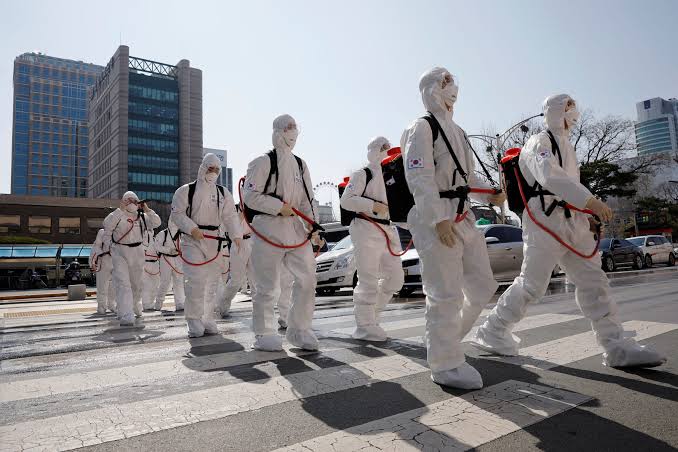South Korea on Monday announced plans to reopen schools starting next week, more than two months after schools were closed in a precautionary measure against the new coronavirus that has infected more than 10,000 here.
SEE ALSO: Man Shares Kidney With Classmate From 50 Years Back
Starting on May 20, which is two weeks after key holidays in May, we will push to (reopen schools) in a phased and sequential process,” Education Minister Yoo Eun-hae said at a press briefing.
Under the plan, high school seniors will return to school on May 13, while other grades will return to school gradually in the following weeks.
Students in grade 2 of high school, grade 3 of middle school and grades 1 and 2 in elementary schools will return on May 20, while those in grade 1 of high school, grade 2 of middle school and grades 3 and 4 in elementary schools will go back on May 27.
Students in grade 1 of middle school and grades 5 and 6 in elementary school will return on June 1.
South Korea runs a 6-3-3 school system, which consists of six years of elementary school and three years each of middle school and high school.
Yoo said the government considered several factors, such as having enough time to assess the impact of the long holiday in late April and early May as well as the academic needs of high school seniors.
Key public holidays — such as Buddha’s Birthday, Labor Day and Children’s Day — all fell in late April or early May this year, raising the alert on possible transmissions as people travel across the country.
Yoo added that the youngest students will be returning to school at an early date, given that many students are already taking part in emergency child care sessions and that face-to-face teaching is more effective for their age.
The education minister, however, warned that the school reopening should not be considered as “the end of the coronavirus,” urging teachers, parents, and students to closely follow quarantine guidelines.
The government plans to advise schools to disinfect classrooms and school facilities, diversify class schedules to minimise infection risks in crowded classrooms, change seating arrangements and mandate face masks except for meal times.
Around 99 per cent of schools across the country have completed quarantine preparations and secured 14 million hygiene masks in addition to 18 million cotton masks, according to the education ministry.
The government will also run regular fever checks, ban families of patients and those who have traveled abroad from coming to school and shift to remote learning if an infection occurs.
“Schools cannot go back to the times before the COVID-19 outbreak … this may become an inconvenient everyday life for all of us.
“However, we can wisely lead a new everyday life if we all cooperate, as we had all striven to push ahead with remote learning, which was also once considered unfamiliar,” Yoo said.
Health authorities echoed the view, emphasising continued vigilance against the contagious virus.
“We believe that the possibility of group transmissions at schools after their reopening is not high but is still there,” Jeong Eun-kyeong, director-general of the Korea Centers for Disease Control and Prevention, said, adding that health authorities and the education ministry are running mock tests against contingency scenarios.
Students have been taking online classes since April.
The new school year usually starts in March here, but the government postponed it by five weeks or more as part of efforts to fight the virus pandemic.
It marked the first time in the country’s 70-year history of education that students began the new school year through online classes.
The school reopening comes as concerns over new infections are weakening.
Daily infections, which peaked at 909 on Feb. 29, have fallen to single-digit figures in the past few days.
As of Monday, South Korea has reported 10,801 cases.
It reported its first case on Jan. 20.
In an indication of what appears to be weakening risks, Seoul is set to ease its intensive social distancing campaign starting Wednesday.

